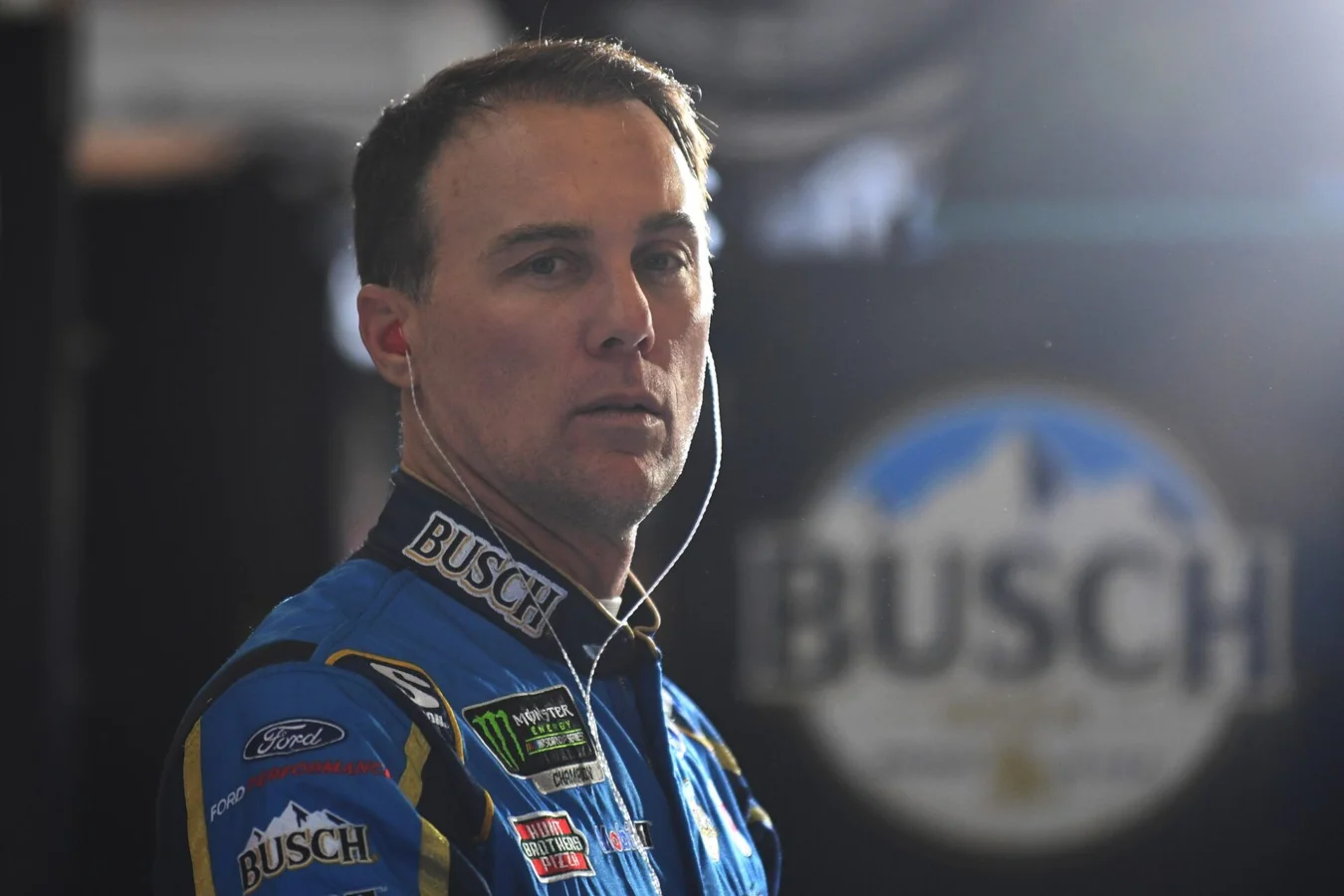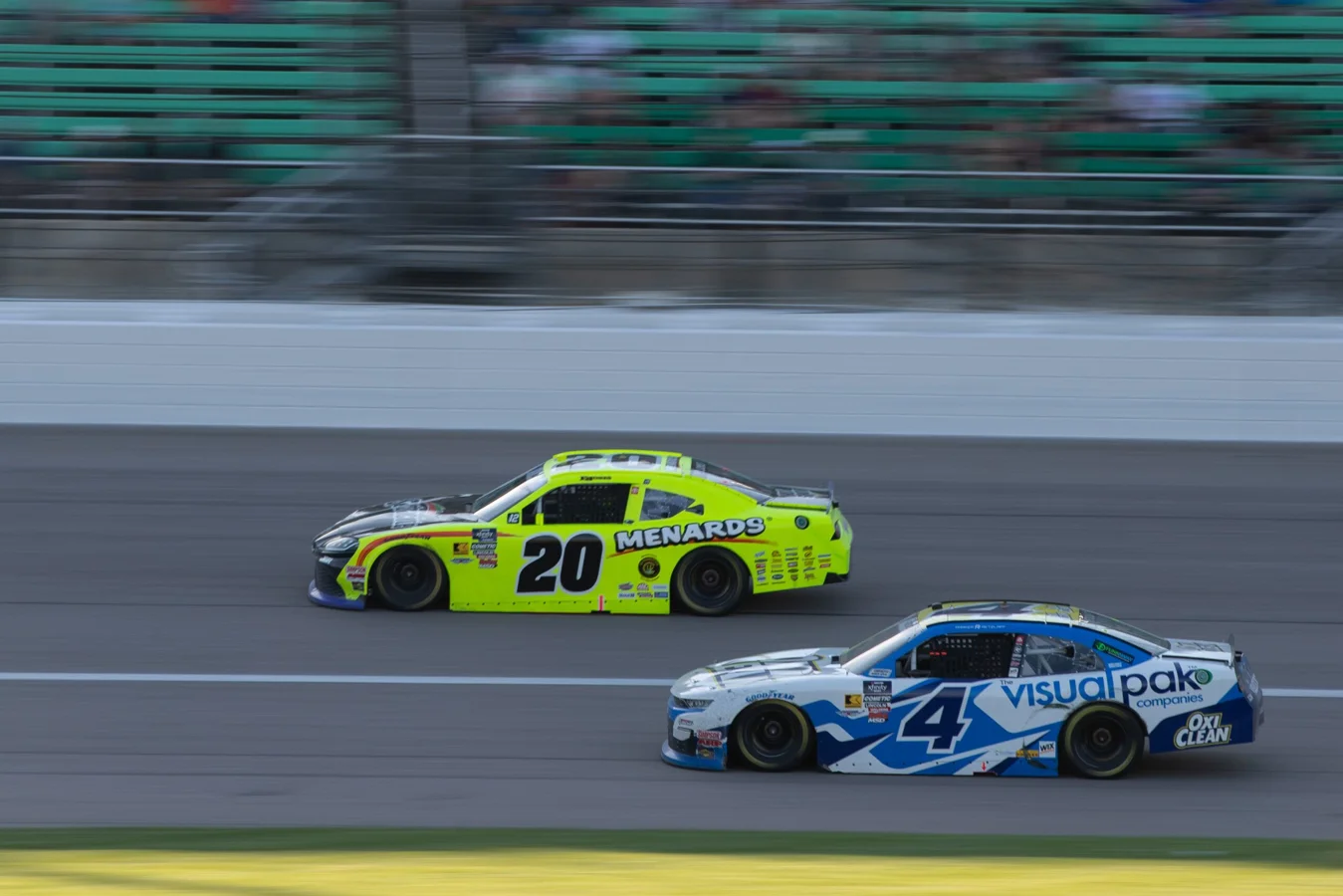Kevin Harvick, a former champion, has raised concerns about a longstanding but rarely spoken expectation in NASCAR, following a dramatic incident at Kansas Motor Speedway where Denny Hamlin challenged his own driver, Bubba Wallace, in the final lap. The event, which saw Chase Elliott seize the victory after tension erupted between Hamlin and Wallace, highlighted the complexities of relationships among owner-drivers and prompted Harvick to discuss the “NASCAR unwritten rule” that may have been broken.
Tense Final Laps at Kansas Put Relationships to the Test
The NASCAR Cup Series race at Kansas was marked by intense competition, particularly as Bubba Wallace, who drives for 23XI Racing, found himself going head-to-head with 23XI co-owner Denny Hamlin. In the closing moments, Hamlin’s aggressive tactics resulted in both drivers missing out on the win, leaving Chase Elliott, the 2020 Cup champion, to claim victory. This outcome has ignited debate about the responsibilities and decisions faced by those who juggle dual roles as drivers and team owners, such as Joe Gibbs and @DeLanaHarvick, and their influence over pivotal race decisions.
Kevin Harvick Weighs In With Hard-Earned Perspective
As someone with experience both behind the wheel and in the owner’s chair through KHI, Kevin Harvick offered an emotional and reflective take on the Kansas incident during his Happy Hour podcast. Expressing empathy for Hamlin’s predicament, Harvick described how such conflicts are fraught with difficulty and no simple resolutions, given the multiple allegiances involved. He underlined the reality that in moments where a driver races for a team they partially own or manage, divided loyalties can leave someone disappointed regardless of the outcome.

“I’ve been in a position where Denny Hamlin is in currently where you drive for another team and you own cars. And it’s really, really difficult because if he doesn’t drive in there and try to win the race and do what he did, his team is gonna be mad.” — Kevin Harvick, via Happy Hour podcast
Harvick’s described the dilemma as a classic catch-22: attempt to win and risk displeasing one side, or show restraint and face scrutiny from another. He reinforced the obligation every driver feels to the car they are piloting, emphasizing that the duty to one’s current team must come before all else—even when that clashes with other interests or business ventures.
“You have to do everything that you can to win for the car that you’re driving. That’s the obligation.” — Kevin Harvick, via Happy Hour podcast
Drawing on his experiences, Harvick admitted that being in Hamlin’s shoes had rarely ended well for him or his own team. His acknowledgment resonated with others in the sport, such as @DeLanaHarvick, validating the enduring emotional strain these situations place on all involved.
The Unwritten Rule: Win If You Risk It All
The aftermath of the Kansas finish, with both Hamlin and Wallace missing the win, fueled Harvick’s discussion about NASCAR’s unspoken expectations. He contended that among racers, there exists an “unwritten rule” demanding drivers ensure a member of their own group triumphs if aggressive tactics among partners are taken. In this case, however, with half a lap remaining and the team in control, neither Hamlin nor Wallace managed a win, handing Elliott a golden opportunity at their expense.
“When it worked out the way that it did, the only rule he broke is one of you better win…One of you better win and it took both teams out of contention, and they handed a gimme to Chase Elliott. They had everything under control.” — Kevin Harvick, via Happy Hour podcast
Harvick clarified that while Hamlin and Wallace may not be traditional teammates, the dynamics of employer and employee, as well as shared organizational goals, make them functionally as connected as teammates in such high-stakes scenarios. From Harvick’s perspective, the real transgression wasn’t the on-track aggression, but the collective loss it caused for both parties involved.
“That’s kind of the unwritten rule — if you’re going to bang doors with your teammate and you’re going to do all those things, you better make sure one of you wins the race. I know they’re not technically teammates, but they might as well be with the way this all goes.” — Kevin Harvick, via Happy Hour podcast
This viewpoint underscores the somber, emotional atmosphere following the race. Rather than just a matter of missed opportunity, the incident touched deep issues of trust, obligation, and collective achievement that define professional racing at this level.
Denny Hamlin Stands Firm Amid Fallout
Denny Hamlin responded to the controversy on his own podcast, “Actions Detrimental,” presenting a defensive and unwavering stance about his actions in Kansas. While he recognized that hindsight could offer alternative strategies, Hamlin insisted that prioritizing his JGR No. 11 team on race day leaves no space for apology. His remarks highlighted the internal conflict faced by drivers like himself, who must compartmentalize their identity as owners and competitors.
“Because I’m racing for the win, and I definitely won’t apologize for racing for the win… On Sunday, I am the driver. The person in the 11 car is the driver. That’s where the disconnect I think comes from is that people expect me to be a different person, they expect me to be the guy with a 23XI shirt on when I’m in the 11 car, and that’s just not possible.” — Denny Hamlin
Hamlin’s perspective lays bare the heavy toll that these high-stakes split loyalties can take on even the most battle-hardened drivers. Despite outside expectations, his unwavering commitment to Joe Gibbs Racing illustrates the intense pressure and emotional complexity that define NASCAR at this elite level.
Impact on Joe Gibbs Racing and the Road Ahead
This Kansas incident, involving employee and employer, will likely have far-reaching effects, not only on Joe Gibbs Racing but also across the sport. As competitors, such as Bubba Wallace and Denny Hamlin, strive for individual accomplishments, team unity comes into question when alliances are complicated by business and racing relationships. The reflective insights from Kevin Harvick, as well as Hamlin’s own steadfast defense, leave open questions about how future races will unfold and if strategies on track will be tempered by the lessons learned in Kansas.
The event is poised to shape ongoing discussions about the expectations faced by those who occupy overlapping roles as owners, teammates, and rivals. With the NASCAR Cup Series moving forward, all eyes will be on Joe Gibbs Racing, @HarvickHappyPod, and the broader roster of racers to see if the underlying tensions shift the culture and conduct of top-tier racing—or if the unwritten rule, as described by Harvick, becomes even more significant in upcoming showdowns.
“You have to do everything that you can to win for the car that you’re driving. That’s the obligation." @KevinHarvick has been in the same position as Denny Hamlin. It also didn't end well for the team he owned. @DeLanaHarvick can confirm. pic.twitter.com/mPpGiGMVaa
— HarvickHappyHour (@HarvickHappyPod) September 30, 2025
